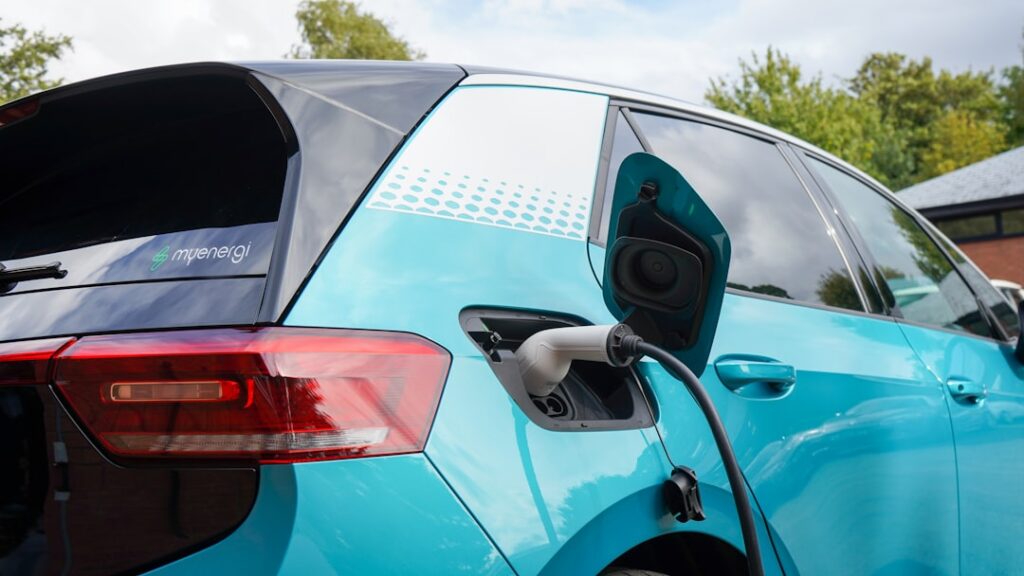Electric racing has been gaining significant traction in recent years as a sustainable and efficient alternative to traditional motorsports. With the increasing concern over climate change and the need for more sustainable transportation options, electric racing has emerged as a viable solution. This blog post will explore the benefits, challenges, and future of electric racing, highlighting its potential to revolutionize the motorsports industry and promote sustainable transportation.
The Benefits of Electric Racing: Sustainability and Efficiency
One of the key benefits of electric racing is its sustainability. Unlike traditional motorsports that rely on combustion engines, electric racing produces zero emissions. This means that it does not contribute to air pollution or greenhouse gas emissions, making it a much more environmentally friendly option. With the growing concern over climate change and the need to reduce carbon emissions, electric racing provides a sustainable alternative that can help mitigate the impact of motorsports on the environment.
In addition to its sustainability, electric racing is also more efficient than traditional motorsports. Electric motors are inherently more energy-efficient than combustion engines, converting a higher percentage of energy into motion. This means that electric racing cars can achieve higher speeds and better acceleration while using less energy. The efficiency of electric motors also translates into longer endurance, allowing for longer races without the need for frequent refueling or recharging.
The Evolution of Electric Racing Technology
Electric racing technology has evolved rapidly in recent years, thanks to advancements in battery technology and motor efficiency. Batteries have become smaller, lighter, and more powerful, allowing for longer ranges and faster charging times. This has made electric racing cars more competitive and exciting, as they can now match or even surpass the performance of their combustion engine counterparts.
Motor efficiency has also improved significantly, with electric motors becoming more compact and powerful. This has allowed for better acceleration and higher top speeds, making electric racing cars more competitive on the track. Additionally, advancements in regenerative braking technology have made electric racing cars even more efficient, as they can recover and store energy that would otherwise be lost during braking.
The Role of Electric Racing in Reducing Carbon Emissions
Electric racing plays a crucial role in reducing carbon emissions by promoting sustainable transportation. By showcasing the potential of electric vehicles on the race track, electric racing can inspire more people to switch to electric cars for their daily commute. This, in turn, can help reduce the overall carbon footprint of the transportation sector, which is one of the largest contributors to greenhouse gas emissions.
Furthermore, electric racing serves as a platform for car manufacturers to showcase their electric vehicle technology and innovation. By competing in electric racing events, car manufacturers can demonstrate the performance and capabilities of their electric vehicles, dispelling any doubts or misconceptions about their viability. This can help accelerate the adoption of electric vehicles by showing consumers that they can be just as powerful and exciting as traditional combustion engine cars.
The Challenges Facing Electric Racing: Battery Technology and Infrastructure
While electric racing has many benefits, it also faces several challenges that need to be addressed for its widespread adoption. One of the biggest challenges is battery technology. Electric racing cars require powerful batteries that can provide the necessary speed and endurance for racing. However, current battery technology still has limitations in terms of energy density and charging times. Improvements in battery technology are needed to overcome these limitations and make electric racing cars more competitive.
Another challenge facing electric racing is infrastructure. Electric racing requires a network of charging stations and other support systems to ensure that the cars can be charged quickly and efficiently during races. This infrastructure needs to be developed and expanded to accommodate the growing demand for electric racing. Additionally, there is a need for standardized charging protocols to ensure compatibility between different charging stations and electric racing cars.
The Future of Electric Racing: Expansion and Innovation

Despite the challenges it faces, the future of electric racing looks bright. As battery technology continues to improve, electric racing cars will become even more competitive and exciting. We can expect to see faster charging times, longer ranges, and better overall performance from electric racing cars in the future. Additionally, advancements in motor efficiency and regenerative braking technology will further enhance the performance and efficiency of electric racing cars.
Furthermore, the future of electric racing will see an expansion of races and events around the world. As more countries and cities embrace electric racing, we can expect to see a greater variety of tracks and race formats. This will not only provide more opportunities for drivers and teams but also attract a larger audience and fan base.
The Impact of Electric Racing on the Automotive Industry
Electric racing is already having a significant impact on the automotive industry. As car manufacturers compete in electric racing events, they are investing more in electric vehicle technology and innovation. This has led to advancements in battery technology, motor efficiency, and overall performance of electric vehicles. The competition in electric racing is driving the development of better and more efficient electric vehicles, benefiting consumers who are looking for sustainable transportation options.
Additionally, electric racing is helping to change the perception of electric vehicles among consumers. By showcasing the performance and capabilities of electric vehicles on the race track, electric racing is dispelling any doubts or misconceptions about their viability. This is leading to increased consumer acceptance and adoption of electric vehicles, which is crucial for reducing carbon emissions and transitioning to a more sustainable transportation system.
The Growing Popularity of Electric Racing Among Fans
Electric racing is gaining popularity among fans who appreciate the sustainability and excitement of the sport. The sustainability aspect of electric racing resonates with environmentally conscious fans who are looking for more sustainable alternatives to traditional motorsports. The excitement comes from the high-speed races and close competition that electric racing offers.
As more people become interested in electric racing, the sport will continue to grow. This will lead to more support from fans, sponsors, and investors, which will further drive the development and expansion of electric racing events. The growing popularity of electric racing among fans is a testament to its potential to revolutionize the motorsports industry and promote sustainable transportation.
The Importance of Electric Racing in Shaping the Future of Motorsports
Electric racing is an important part of the future of motorsports. As the world shifts towards more sustainable transportation options, traditional motorsports will need to adapt to stay relevant. Electric racing provides a sustainable and efficient alternative that aligns with the changing needs and values of society.
Furthermore, electric racing promotes innovation and technological advancements in the motorsports industry. As car manufacturers compete in electric racing events, they are pushing the boundaries of what is possible with electric vehicle technology. This innovation will not only benefit electric racing but also influence the direction of the entire motorsports industry, leading to more sustainable and efficient practices.
The Exciting Potential of Electric Racing
In conclusion, electric racing has the potential to revolutionize the motorsports industry and promote sustainable transportation. With its sustainability and efficiency benefits, electric racing offers a viable alternative to traditional motorsports. As technology and infrastructure continue to improve, electric racing will become even more exciting and competitive. The impact of electric racing on the automotive industry and its growing popularity among fans further highlight its potential to shape the future of motorsports. With its exciting potential, electric racing is poised to play a significant role in promoting sustainability and innovation in the years to come.



